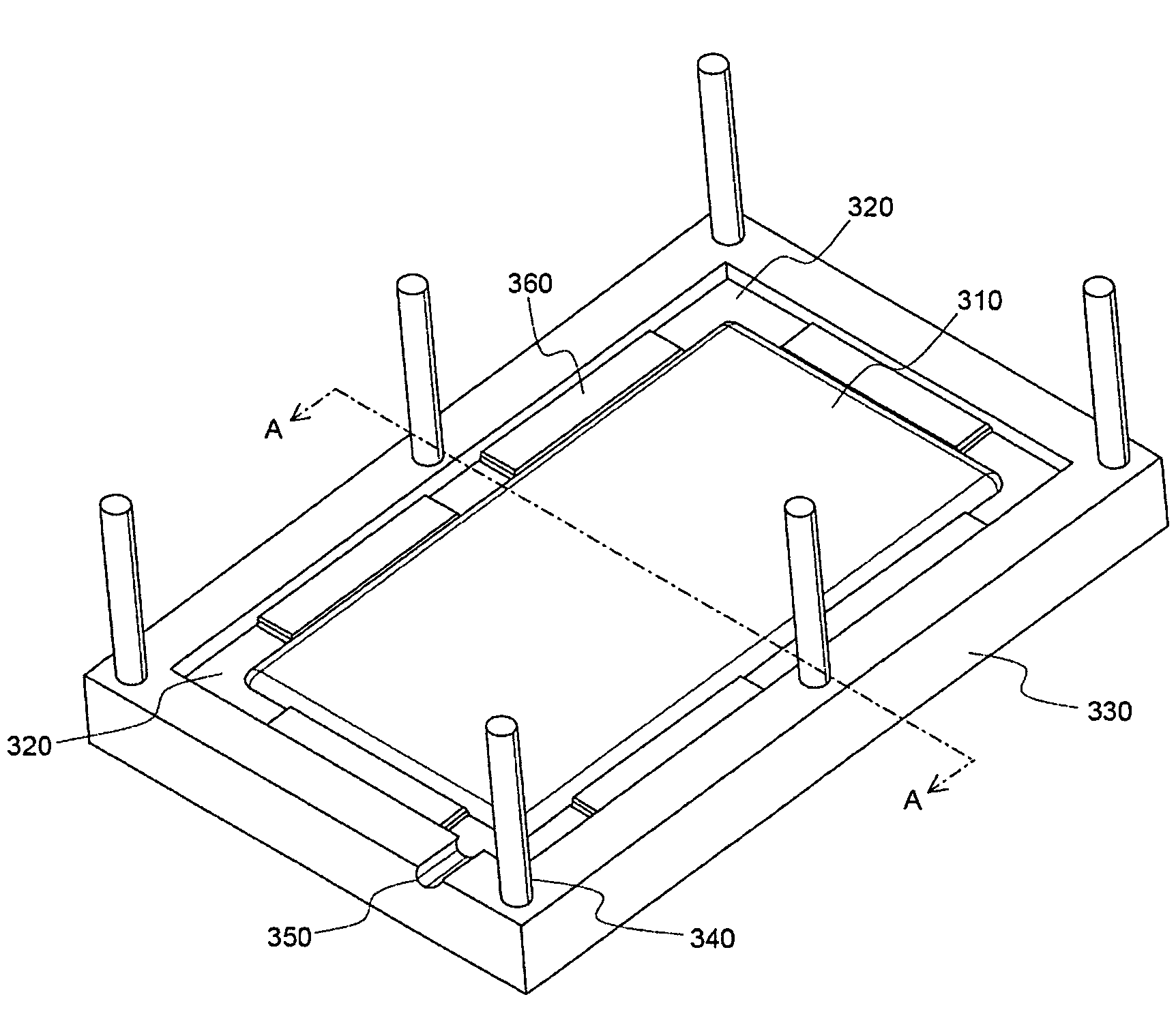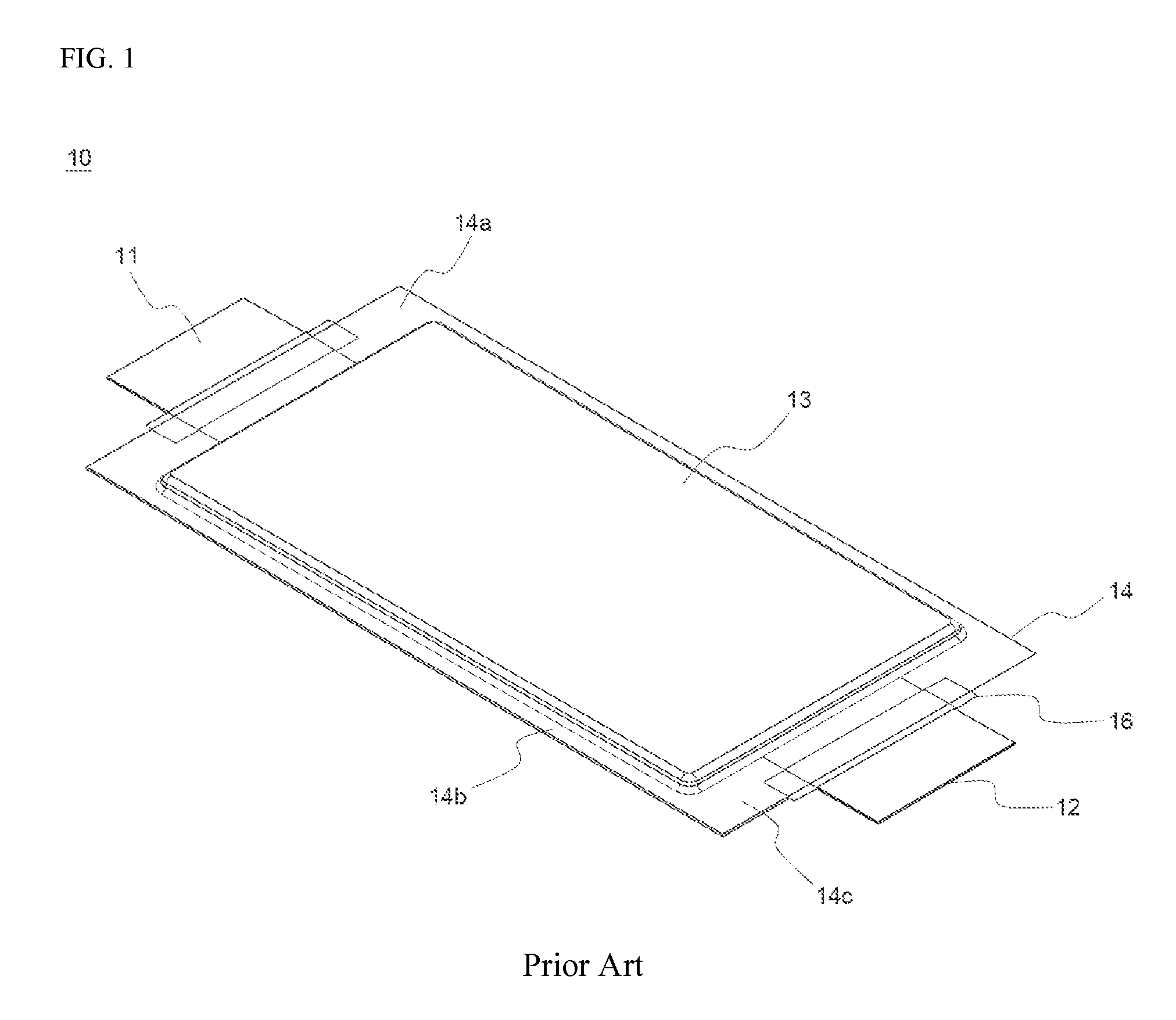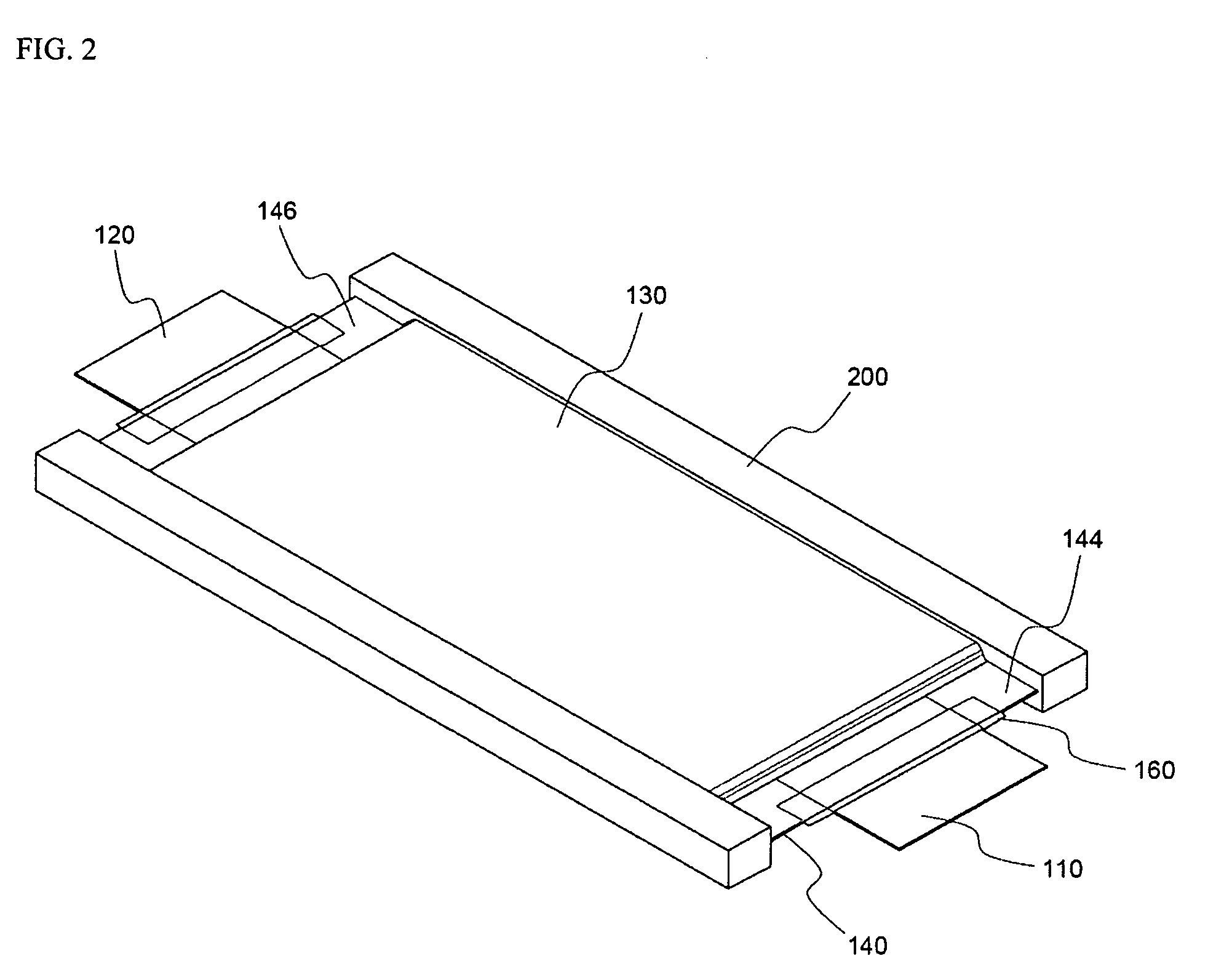Apparatus for manufacturing secondary battery
a secondary battery and accessory technology, applied in the manufacture of secondary cells, final product manufacturing, drawing profiling tools, etc., can solve the problems of increasing the total weight and the total size of the battery pack, low mechanical strength of the battery case b>14/b>, and not providing high sealing force, so as to achieve further improvement of structural stability
- Summary
- Abstract
- Description
- Claims
- Application Information
AI Technical Summary
Benefits of technology
Problems solved by technology
Method used
Image
Examples
Embodiment Construction
[0038]Now, preferred embodiments of the present invention will be described in detail with reference to the accompanying drawings. It should be noted, however, that the scope of the present invention is not limited by the illustrated embodiments.
[0039]FIGS. 2 to 4 are perspective views illustrating secondary batteries according embodiments of the present invention, which can be manufactured using an apparatus according to the present invention.
[0040]Referring to FIG. 2, the secondary battery 100 is constructed such that the opposite sides, the upper end part 144, and the lower end part 146 are sealed while an electrode assembly (not shown) is mounted between a two-unit pouch-shaped battery case 140, and cathode and anode leads 110 and 120 protrude from the upper end and the lower end of the battery 100, respectively. Between the electrode leads 110 and 120 and the battery case 140 is interposed a film-shaped sealing member 160 for increasing sealability between the electrode leads 1...
PUM
| Property | Measurement | Unit |
|---|---|---|
| height | aaaaa | aaaaa |
| circumference | aaaaa | aaaaa |
| size | aaaaa | aaaaa |
Abstract
Description
Claims
Application Information
 Login to View More
Login to View More - R&D
- Intellectual Property
- Life Sciences
- Materials
- Tech Scout
- Unparalleled Data Quality
- Higher Quality Content
- 60% Fewer Hallucinations
Browse by: Latest US Patents, China's latest patents, Technical Efficacy Thesaurus, Application Domain, Technology Topic, Popular Technical Reports.
© 2025 PatSnap. All rights reserved.Legal|Privacy policy|Modern Slavery Act Transparency Statement|Sitemap|About US| Contact US: help@patsnap.com



